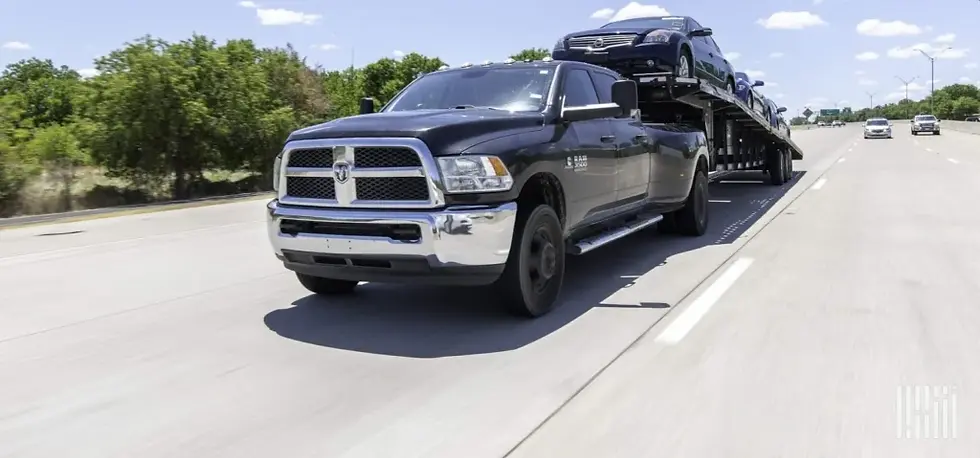How to Start a Hot Shot Trucking Business with a Pickup Truck
- Nate Jones, CPCU, ARM, CLCS, AU

- Sep 12, 2025
- 2 min read
Hot shot trucking is one of the fastest-growing segments in the transportation industry. It’s ideal for entrepreneurs who want to start small, operate independently, and haul time-sensitive loads using a pickup truck and trailer. If you're wondering how to start a hot shot trucking business with a pickup truck, this guide covers the essentials—from equipment and permits to insurance and compliance.

What Is Hot Shot Trucking?
Hot shot trucking involves hauling smaller, urgent loads that don’t require a full-size semi-truck. These loads are typically delivered using a Class 3 to Class 5 pickup truck paired with a flatbed or gooseneck trailer. Common industries served include oil and gas, construction, agriculture, and manufacturing.
Step-by-Step Guide to Starting Your Business
Step 1. Choose the Right Pickup Truck and Trailer
You’ll need a heavy-duty pickup truck (like a Ford F-350 or Ram 3500) capable of towing up to 20,000 lbs. Pair it with a gooseneck or bumper pull trailer depending on your hauling needs.
Step 2. Get Your Operating Authority
USDOT Number
MC Number (if hauling interstate)
Unified Carrier Registration (UCR)
International Registration Plan (IRP)
International Fuel Tax Agreement (IFTA) (if applicable)
Step 3. Secure Hot Shot Trucking Insurance
Insurance is one of the most important investments for your business. Wexford Insurance specializes in helping hot shot trucking companies get the right coverage, including:
Trailer Interchange Insurance
Physical Damage Coverage
General Liability Insurance
Whether you're a new venture or an experienced operator, Wexford Insurance helps you stay compliant and protected.
Step 4. Get a CDL (If Required)
If your combined vehicle weight rating (GCWR) exceeds 26,001 lbs, you’ll need a Commercial Driver’s License (CDL). Otherwise, you may be able to operate without one, depending on your state and load type.
Step 5. Build Your Business
Register your business (LLC, sole proprietorship, etc.)
Set up accounting and dispatch systems
Market your services to brokers and shippers
Maintain your truck and trailer regularly
Common Mistakes to Avoid
Skipping Insurance: Operating without proper coverage can lead to fines and financial loss.
Underestimating Startup Costs: Budget for fuel, maintenance, permits, and insurance.
Ignoring Compliance: Missing registrations or filings can result in penalties.
Choosing the Wrong Equipment: Match your truck and trailer to the loads you plan to haul.
Final Thoughts
Starting a hot shot trucking business with a pickup truck is a great way to enter the transportation industry with lower overhead and flexible operations. With the right equipment, permits, and insurance, you can build a profitable business. Wexford Insurance is your trusted partner in securing coverage and supporting your growth every step of the way. Contact now!




